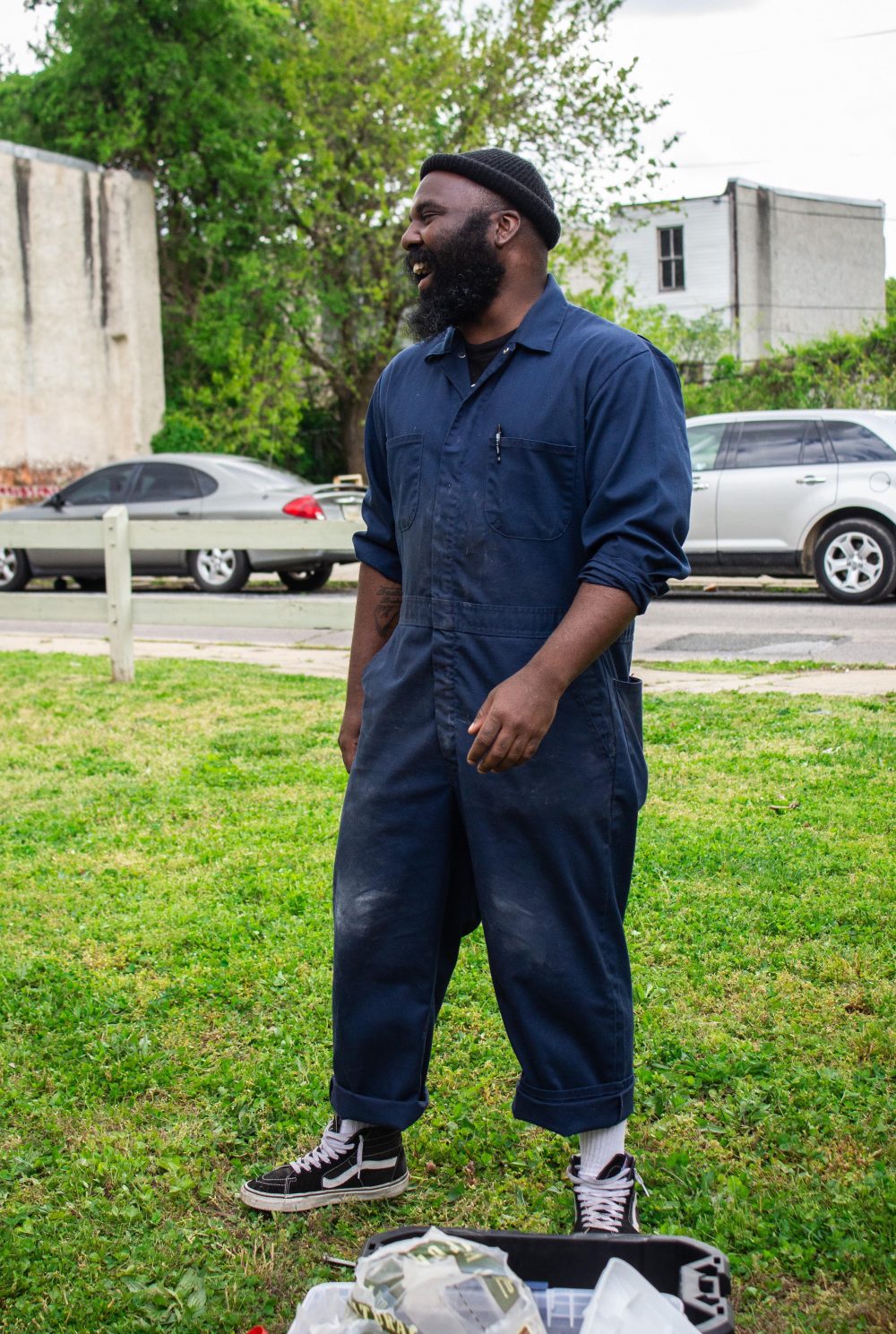Omar Tate is the creator of Honeysuckle, a pop-up dinner series inspired by Black literature, culture and music. At a dinner in New York City before the shutdown, he served charred sweet potato cooked in yam molasses as an homage to a scene in Ralph Ellison’s “The Invisible Man.” More recently, for a takeout iteration of his pop-up that he started after moving back home to Philadelphia when the COVID-19 crisis hit, he made food to honor his activist grandfather, including oysters with chow-chow and boiled peanuts.
On a recent episode of Milk Street Radio, Tate spoke with Christopher Kimball about Honeysuckle, his poetry and what restaurants are really all about. Get a taste of the full interview in the excerpts below, then listen to the episode on our website or via Apple Podcasts.
On Honeysuckle
Honeysuckle is a concept that uses food as the nucleus to explore various ideas of the nuances of Blackness in America, specifically. I say America specifically because the Black people in this country have had quite the hurdle in our search for identity. Many of us can’t trace back our heritage more than two grandparents ago. Michael Twitty talks a lot about having a flag in his book “The Cooking Gene.” If you point to the flag of Jamaica, foodwise, you think of oxtail. You think of rice and peas. When you tell someone you’re an African American, most people only ever associate that with pain. Honeysuckle is me generating a flag for myself. It's not just pain. Pain is always there, but there were plenty of joys as well.
On Kool-Aid
Everyone likes sweets and everyone likes a sweet memory and Kool-Aid is both of those things for me. As a family, we had our meals with a glass of water and we would either have Kool-Aid or lemonade or something like that. I was always the best at making it, according to my mom. I still make it now with my family when we’re itching for a little bit of nostalgia. It’s just a sweet memory of dinner. It also makes me think of the history of minstrelsy and how watermelon became synonymous with laziness and gluttony. There are many, many examples of that association with sugary Kool-Aid. Part of the reason why I served Kool-Aid at my pop-up dinners is to destroy that stigma. There’s a lot of conversation with Black chefs about not wanting to cook the food that we grew up eating. However, these things have tradition and culture to celebrate, which is why I serve Kool-Aid at my dinners at Honeysuckle.
On the inspiration for his poem “Folgers”
I’m not sure if you remember the commercial. The catchphrase was, “The best part of waking up is Folgers in your cup.” For people who are in a relationship, I assume that seeing the person you love is the best part of waking up. In this poem, the coffee, the stimuli, is my partner.
On connecting food to literature
What I find in literature is that if you read between the lines, you’ll find the engagements that were happening around a food moment, or an agricultural moment. You’ll read about someone delivering a baby and what kind of herbs they used to satisfy the woman’s wounds. There’s so much to draw from the nuance of a story.
On what restaurants are really about
Restaurants were never about food. I think that people don’t understand that restaurants were always about people. People that needed food. All these restaurants that are closed right now, that are serving essential workers—they’re not closed. They’re open. They’re serving the community.
Quotes have been edited for clarity.
See here for more from Milk Street Radio, and join the conversation on Facebook, Twitter, Instagram and Pinterest.



